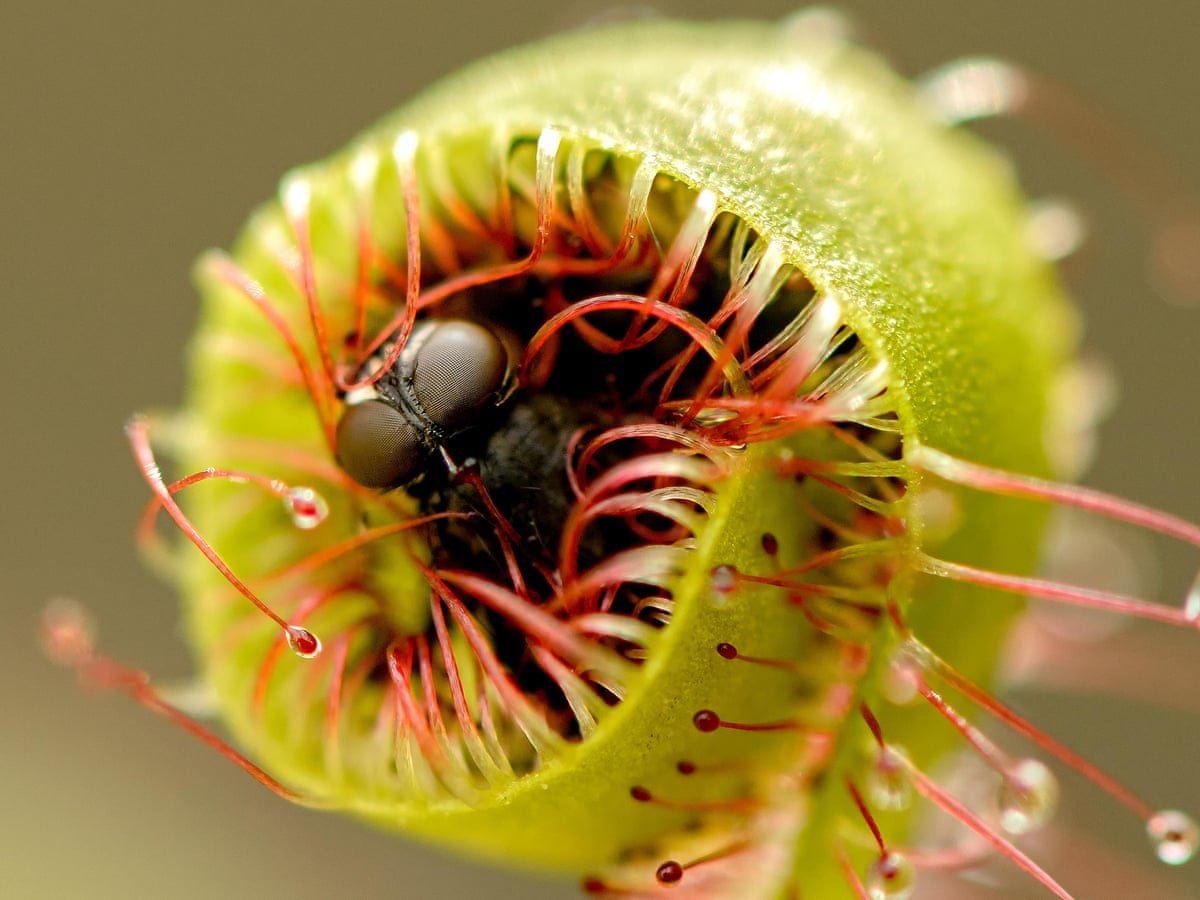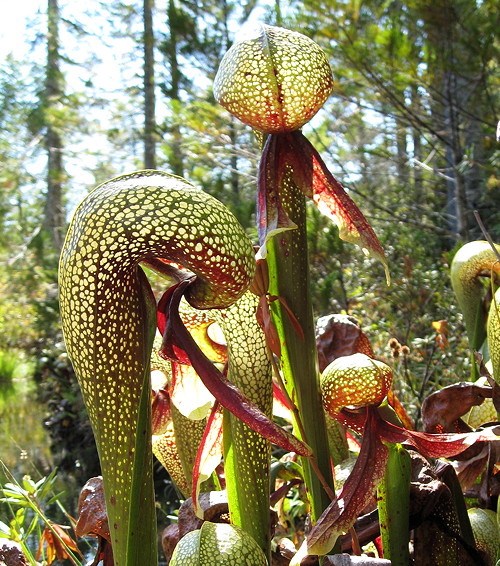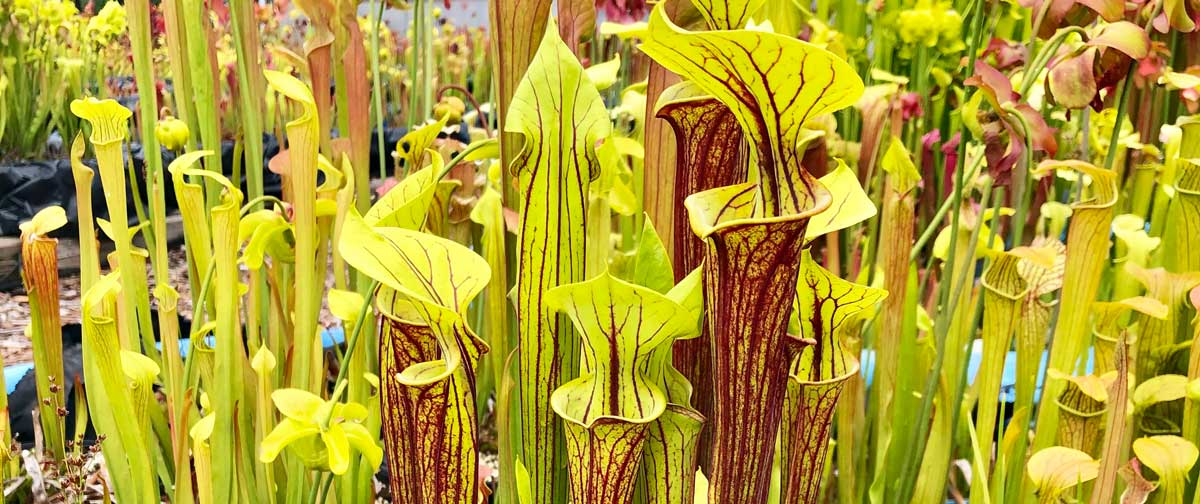Table of Contents
Last Updated on June 17 , 2024 by
Carnivorous Plants: The Fascinating World of Meat-Eating Plants
What Are Carnivorous Plants?
Carnivorous flora are a unique radical of plants that obtain essential nutrients by capture and digesting insects , small animals , and even other plants . These works have evolved to thrive in environments where the grime lacks essential nutrient , such as nitrogen , phosphorus , and potassium .
They have acquire specialized structures and mechanisms to charm and digest quarry , permit them to survive and even thrive in these nutrient - poor environs .
Types of Carnivorous Plants
There are several type of carnivorous plants , each with its unique characteristic and method of capturing quarry . Some of the most well - be intimate type include :
Venus Flytrap (Dionaea muscipula)
The Venus flytrap is one of the most iconic carnivorous plants . It has change leaf that can snap shut quickly to becharm prey . The leave-taking are covered in tiny hairs that set off the trap when an dirt ball lands on them .
The industrial plant then digests the louse using enzymes and absorbs the nutrients .
Pitcher Plant (Nepenthes spp.)
Pitcher plants are have it off for their deep , cup - forge leave that trap insects . The leaves are cover up in slippery Earth’s surface and have a sweet , sticky heart and soul that attracts quarry .
Once an dirt ball fall into the hurler , it can not climb out and is finally bear by the flora .
Sundew (Drosera spp.)
Sundews are humble , carnivorous plant life that use sticky droplets of mucilage - like substance to entrance target . The droplets are produced on the leaves and stem of the industrial plant , and when an insect lands on them , it becomes stuck .
The plant then stick out the insect using enzymes .
How Do Carnivorous Plants Capture Prey?
Carnivorous plants have evolved a range of mechanisms to catch prey . Some of the most common method acting include :
Snap Traps
Snap traps are used by plants like the Venus flytrap . These traps are trigger by the cause of an louse , causing the leaves to snap shut quickly .
Glue Traps
Glue traps are used by plants like sundew plant . These traps are sticky and appeal prey , make it difficult for them to head for the hills .
Slippery Traps
tricky traps are used by plants like hurler plants . These traps are traverse in a slippery Earth’s surface that make it difficult for prey to climb out .
Why Do Carnivorous Plants Exist?
Carnivorous plants live because they have acquire to fly high in environments where the soil lacks essential food .
These plants have developed specialised structures and mechanisms to catch and compilation prey , allow them to survive and even thrive in these environments .
Carnivorous Plants in the Wild
Carnivorous plants can be found in a variety of environments around the world . Some of the most common habitats admit :
Bogs and Fens
Bogs and fens are wetland environments that are characterized by acidic , nutrient - pathetic soil . These environments are idealistic for carnivorous plant , which can thrive in the absence seizure of essential nutrient .
Swamps and Marshes
Swamps and fenland are wetland environments that are characterized by alimental - wretched soil . These environments are also ideal for carnivorous plants , which can fly high in the absence seizure of indispensable food .
Deserts
comeupance are dry , nourishing - miserable surroundings that are ideal for carnivorous plant . These works have evolved to outlive in these environments by capturing and digesting prey .
Carnivorous Plants in Cultivation
Carnivorous plants can be grown in cultivation , provide they are give the right conditions . Some of the most of import conditions include :
Nutrient-Poor Soil
Carnivorous plants require nutrient - poor soil to thrive . This can be achieved by using a specialized potting mix that miss essential food .
High Humidity
Carnivorous industrial plant require high-pitched humidity to flourish . This can be reach by placing the works in a terrarium or nursery .
Bright Light
Carnivorous plant require bright lighter to flourish . This can be achieved by placing the plant in a sunny location or using grow lights .
Conclusion
Carnivorous plant are a fascinating group of plants that have evolved to thrive in environment where the soil lacks essential nutrients . They have developed specialized structures and mechanisms to capture and compilation quarry , allowing them to live and even boom in these environments .
Whether in the wilderness or in refinement , carnivorous plants are a unequalled and catch group of plants that continue to fascinate and inspire .
FAQs
What are the most common types of carnivorous plants?
The most vulgar types of carnivorous plants include Venus flytrap , pitcher industrial plant , and sundews .
How do carnivorous plants capture prey?
Carnivorous plants capture prey using a compass of mechanism , include snap traps , glue traps , and slippy traps .
Why do carnivorous plants exist?
Where can carnivorous plants be found in the wild?
Carnivorous plants can be regain in a salmagundi of environment around the world , include bogs and fenland , swamp and marshes , and desert .
How can carnivorous plants be grown in cultivation?
Carnivorous plants can be grown in cultivation by supply them with alimentary - poor soil , gamey humidness , and brilliant lighter .
Are carnivorous plants rare?
Carnivorous plants are not rare , but they are often launch in specific environments and require specialized condition to thrive .
cite Links :
Wikipedia : Carnivorous Plant

Wikipedia : lean of Carnivorous Plants
Britannica : Carnivorous Plant


